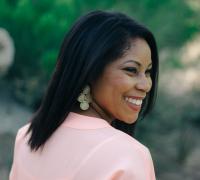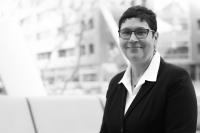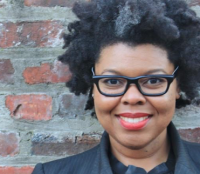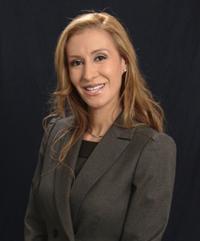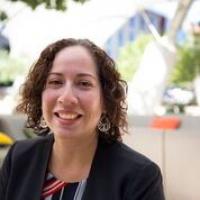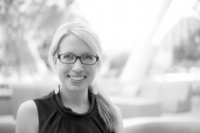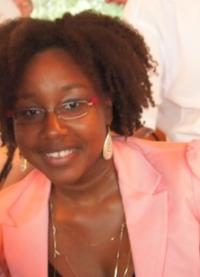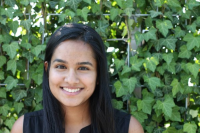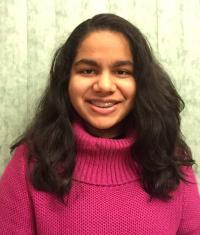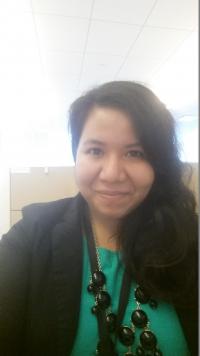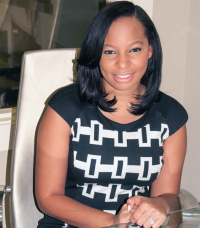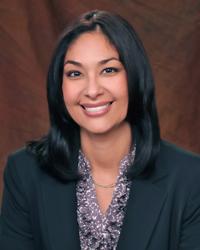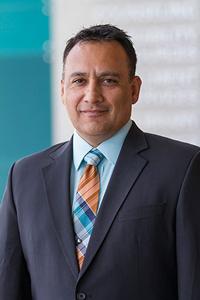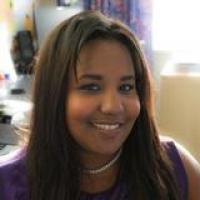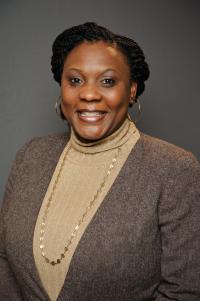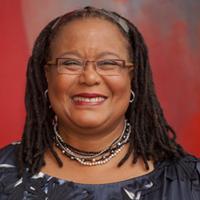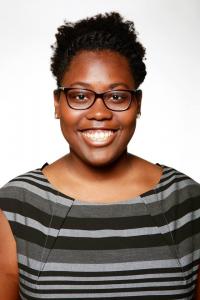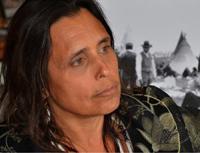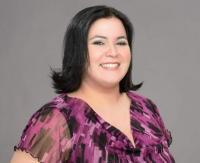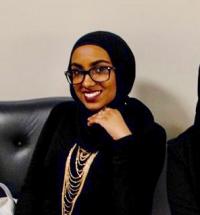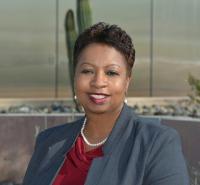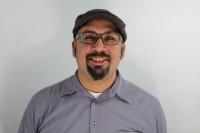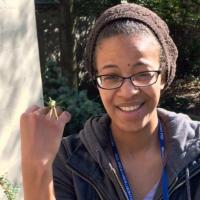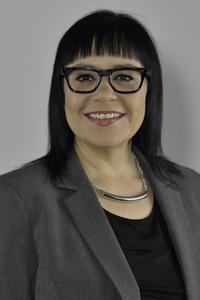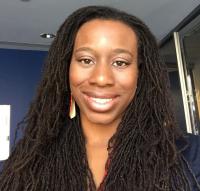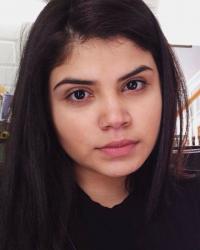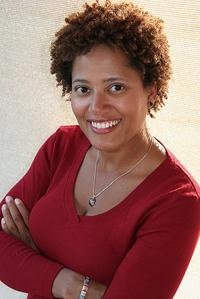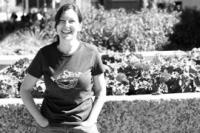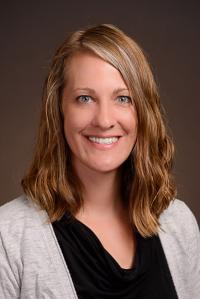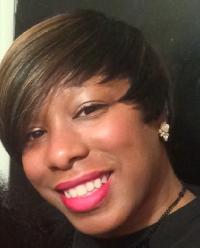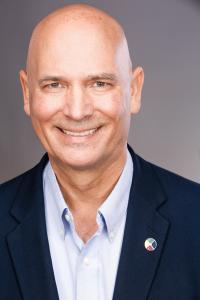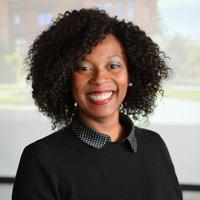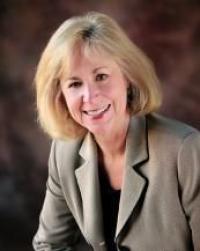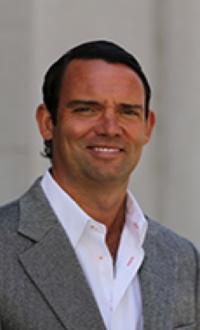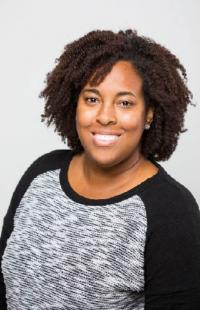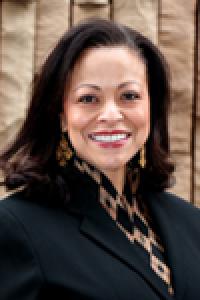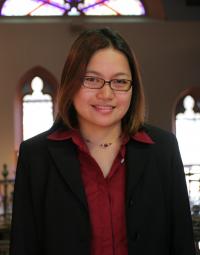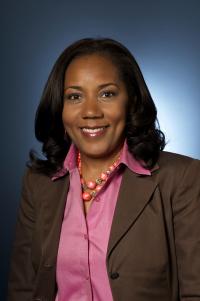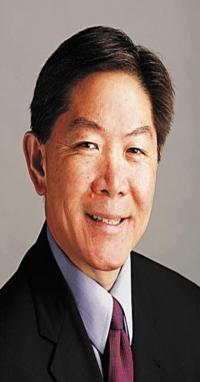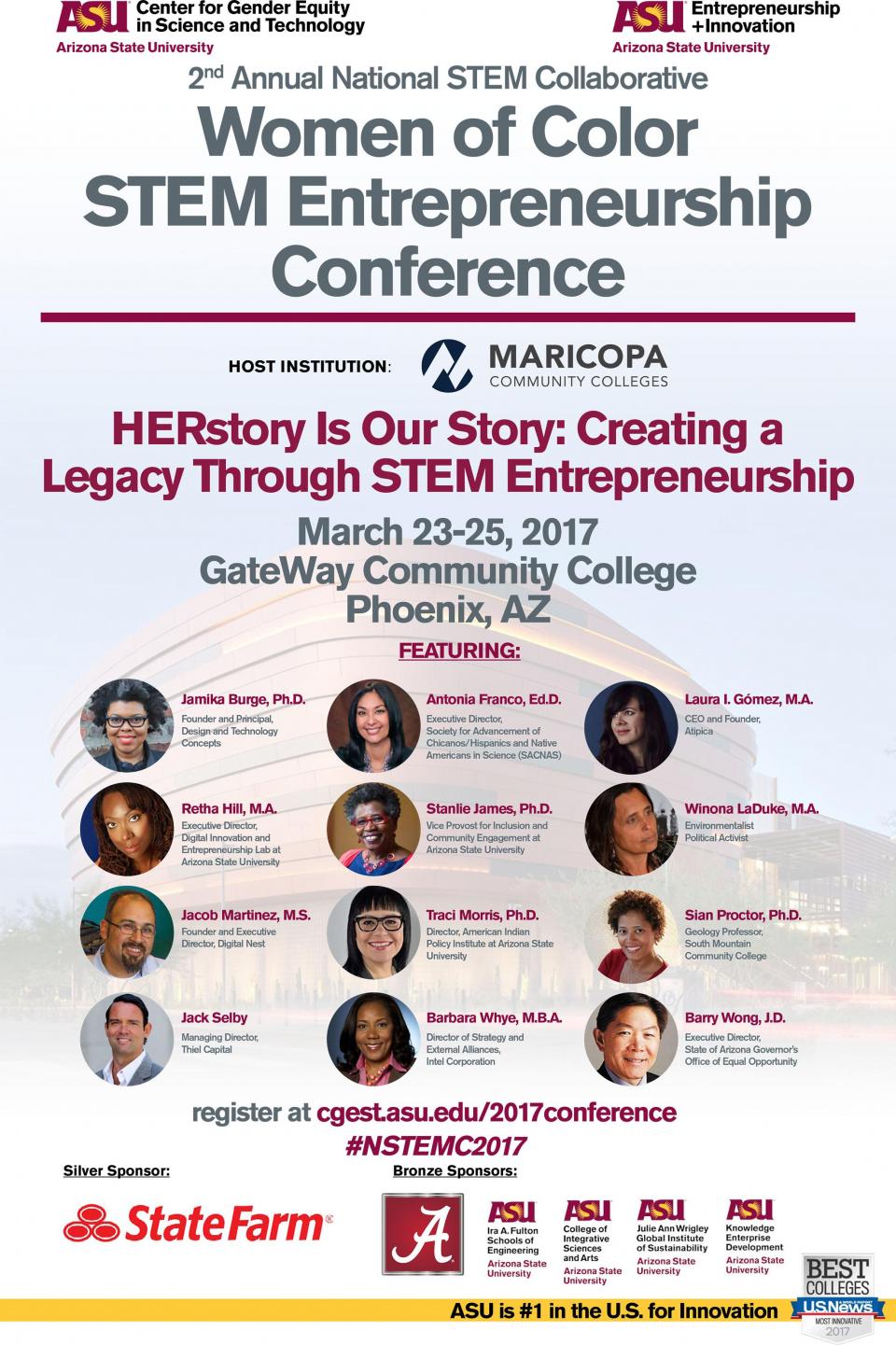Details
Thank you for your interest in the 2nd Annual Women of Color STEM Entrepreneurship Conference. The conference was a collaborative effort to advocate for increased participation of women of color in entrepreneurship experiences and small business enterprise; to advance entrepreneurship education and entrepreneurial student engagement; and to transform the ways that entrepreneurship is viewed, taught and experienced in higher education.
Title: HERstory Is Our Story: Creating a Legacy Through STEM Entrepreneurship
Date: March 23-25, 2017
Venue: GateWay Community College
108 N 40th St, Phoenix, AZ 85034
Download Directions and Map to GateWay Community College
Opening Reception and Keynote on Thursday evening were held at Marston Theater located at ISTB 4 on the ASU Tempe campus.
Download Directions and Map to ISTB 4
Parking: Parking was free at GateWay Community College. Closest parking for the Opening Reception and Keynote at Marston Theater was located at the Rural Road Parking Garage. Rates for visitor lots are $3 per hour.
Conference Hotel:
Aloft Phoenix Airport
4450 E. Washington Street Phoenix, AZ, 85034
Reserve a room for the conference rate of $149 per night online until February 21, 2017.
Admission: Registration Rates available here.
Producing Partners: Center for Gender Equity in Science and Technology, ASU Entrepreneurship + Innovation.
Host Institution: Maricopa County Community Colleges.
Sponsors: Thank you to the sponsors of the 2017 Women of Color STEM Entrepreneurship Conference – HERstory Is Our Story: Creating a Legacy Through STEM Entrepreneurship.
Aspiring Women of Color STEM Entrepreneurs Sponsors:
Speakers
Amber Anderson
Amber Anderson
Co-Founder, MORE
Amber Anderson is the founder of Kayson where she specializes in helping people identify, launch (or evolve) and manages "things" their businesses can sell. Over the last ten years, Amber has created tangible and intangible products that save or make her clients more than $1 billion per year. After eight years of success in the corporate setting with companies like Apollo Group, Education 2020 and Clairvoyant, Amber founded Kayson with the goal of using her background in business analytics and product management to help businesses do better and last longer. She has founded three successful companies, including Kayson, and MORE, a community that helps entrepreneurs enjoy both family life and business. Amber is a graduate of Arizona State University and has done graduate work at Western International and Stanford University. Outside of work, Amber can be found spending time with her husband, chasing her son Kayson around, eating something sweet or blogging at amberanderson.me.
Robin Baskin McNulty
Robin Baskin McNulty
Program Coodinator, ASU Entrepreneurship+Innovation
Robin Baskin McNulty is a Coordinator for the Kauffman Foundation Inclusion Grant program, which was awarded to the Office of Entrepreneurship and Innovation in October of 2016. The program helps female entrepreneurs and women of color achieve higher rates of success by working with entrepreneurial programs to increase diversity and inclusion. Robin began her teaching career in 1999, and has taught in numerous high school and college settings including East Valley Institute of Technology (EVIT), Central Arizona Valley Institute of Technology (CAVIT), and Central Arizona College. Her areas of expertise in marketing, technology, video production have led her to co-found Southwest Maker Fest and San Tan Valley Think Tank, and serve in active roles in STEM outreach programs and the Girl Scouts. Robin earned a Bachelors Degree in Mass Communication and Film from Purdue University, where she was also recognized with an Incentive award for Outstanding Leadership by the Caucus of Black Faculty and Staff. She also earned a Masters in Curriculum and Instruction from the University of Phoenix.
Jamika Burge, Ph.D.
Jamika Burge, Ph.D.
Head of Research Curriculum and Outreach, Capital One; Founder and Principal, Design & Technology Concepts, LLC
Dr. Jamika Burge is the Head of Research Curriculum and Outreach at Capital One, where she oversees research curriculum development and outreach for user research at Capital One. This means ideates and creates innovative user research curricula that empower designers, developers, and engineers to apply design thinking and human-centered design principles into their daily work, and beyond. Prior to joining Capital One, Jamika served non-profit and government organizations, including as a consultant to the Defense Advanced Research Projects Agency (DARPA) in the Information Innovation Office (I2O). She provided technical and management consult for innovative DARPA programs which were funded at over $70 million. She has also worked as a researcher at IBM Research (Almaden, CA and Watson, NY). Dr. Burge holds a Ph.D. in computer science, with a focus on human-computer interaction (HCI) from Virginia Tech, where she was an IBM Research Fellow. She has been featured in the New York Times, ComputerWorld, and in 2016, she was recognized by HackBright Academy as a Top Tech Leader to Watch. Jamika is Founder and Principal of Design & Technology Concepts, LLC, a consultancy that focuses on computer science design and education research. She has consulted for Google, the National Center for Women in Technology (NCWIT), and the Association of American Colleges & Universities (AAC&U). She has also received NSF funding for her research supporting inclusion in computing and CS education.
Erika Camacho, Ph.D.
Erika Camacho, Ph.D.
Associate Professor, Arizona State University
After earning her Ph.D. in applied mathematics at Cornell University in 2003, Erika T. Camacho spent a year as a postdoctoral research associate at Los Alamos National Laboratory. She then held a tenure-track faculty position at Loyola Marymount University, while also co-directing the Applied Mathematical Sciences Summer Institute (AMSSI), before arriving at ASU in 2007. She continues to serve as co-director of AMSSI, and was co-principal investigator for two grants from the National Security Agency providing funding for the summer institute.
Dr. Camacho conducts research at the interface of mathematical applications to biology and sociology. Some of her projects include mathematically modeling the transcription network in yeast, the interactions of photoreceptors, social networks, and fungal resistance under selective pressure.
Among the publications she has co-authored are "Positive influence dominating set in online social networks" in Lecture Notes in Computer Sciences; "Dynamics of Two van der Pol Oscillators Coupled via a Bath" in International Journal of Solids and Structures; "‘Traveling Wave' Solution of FitzHugh Model with Cross-Diffusion" in Mathematical Biosciences and Engineering; and "Alcohol's Effect on Neuron Firing" in The Mathematical Scientist.
Dr. Camacho has received various awards including a Citation from the U.S. National Security Agency for her excellent work in mentoring and guiding undergraduate research. She has made extensive contributions of service and outreach at the national level, such as serving as a member of the Diversity Advisory Committee for the Society of Industrial and Applied Mathematics (SIAM), the Advisory Board for the Center for Undergraduate Research in Mathematics (CURM), the task force for expanding mathematical activities at SACNAS, and the Panel on Undergraduate Math-bio Programs (PUMP). She is a Ford Fellow, Sloan Fellow, and a Mellon Mays Fellow.
Dr. Camacho's invited presentations range from panel presentations, research talks, and keynote addresses on "Overcoming Adversity," "The Forces Behind my Drive, Before, During, and After Graduate School," "Taking the Next Steps," and "Mentoring for Success - A Mathematical Perspective," the latter before the Associateship and Fellowship Program Advisory Committee of the National Academies of Science.
Elizabeth Cantu
Elizabeth Cantu
Program Manager for Underserved Communities Program, ASU Entrepreneurship+Innovation
Elizabeth (Liz) Cantú is program manager for underserved communities programs in Arizona State University’s (ASU) Entrepreneurship + Innovation where she provides leadership and direction for entrepreneurship education programs and serves as liaison between contributors. In her role Liz coordinates and supervises entrepreneurship education projects for community college students, professional development for high school teachers in Title I schools, and innovation challenge competitions for high school and community college students. Liz received her Ph.D. in intercultural communication from ASU’s Hugh Downs School of Human Communication, and her M.A. in communication and B.A. in journalism and political science from Texas A&M University. Growing up on the U.S.-Mexico border has encouraged Liz to explore the richness, complexities, and diversity of the borderlands to serve communities and encourage innovative problem solving. She serves in leadership roles within organizations, such as the Isac Amaya Foundation, focused on educational access and equity, (im)migrant rights, and the creation of supportive ally networks for underserved students in higher education.
Andrea Chaves
Andrea Chaves
STEAM Creative Director, TYWLS of Astoria
During Andrea Chaves’ eight years in the NYC Department of Education, she has truly transformed the face of education at The Young Women’s Leadership School of Astoria. With a Bachelor’s degree in Spanish Education from NYU, and a Master’s degree in Instructional Technology from NYIT, Andrea has found a way to blend her two areas of expertise in order to create an innovative learning experience for her students and the school community as a whole. She has transformed her classrooms into digitalized, student-centered learning zones and has established various technology internships where she recruits and trains student leaders in the implementation of technologies. Under Andrea's guidance young women collaborate to create innovative projects to inspire young women to take an interest in the male dominated fields of STEAM. For all of her efforts Andrea has been selected by The White House as a computer science champion of change for promoting CS for young women and has also been awarded the empire state excellence in teaching award. Furthermore, Andrea’s innovative practices have lead The Young Women’s Leadership School of Astoria to be honored as an Apple Distinguished School in 2013 and 2015, as well as a Follett Challenge National Winner in 2015.
Katie Clemens
Katie Clemens
Assistant Director, Youth Entrepreneurship, ASU Entrepreneurship+Innovation
Katie Clemens leads K-12 initiatives that help strengthen the pipeline for entrepreneurship and innovation at Arizona State University. She is responsible for designing and implementing programs for educators and students related to learning through design thinking, entrepreneurship, and applied projects. In partnership with the Verizon Foundation, Katie led the development of the Verizon Innovative Learning (VIL) design thinking program, a national teacher training program that operates in five states, services over 70 teachers, and impacts thousands of students. Katie’s teaching career began with Teach for America in 2010, an organization which seeks to raise student achievement in high-need schools. She taught 7th Grade Language Arts at Pueblo del Sol Middle School in Phoenix and 10th Grade Language Arts at Maryvale High School, where her students saw unprecedented growth and achievement. Katie still continues teaching as an academic associate in the Mary Lou Fulton Teacher’s College at ASU. She earned a bachelors degree in Political Science and Government from Purdue University, and a masters in Secondary Education and Teaching from Mary Lou Fulton Teachers College at ASU.
Patrice Crawford
Patrice Crawford
Research Technician, The University of Alabama
Patrice Crawford graduated from The University of Alabama in Spring 2015. Soon, she was hired by the Department of Biological Sciences at the University as a research technician in microbiology. She majored in Biology and studied Mandarin Chinese for her minor. During her undergraduate career at the University, she was involved with NSBE, the International Student Association, College First, and she gained diverse research experience from 2 different biology laboratories. In Fall 2013, she co-founded the University of Alabama Colony of Alpha Omega Epsilon Professional and Social Sorority for women in Engineering and Technical Science majors. The organization was chartered January 2016. Now, Patrice is also serves as the vice president of AWIS-Tuscaloosa.
Kinjal Dave
Kinjal Dave
Founder, ImplicitByUs
Kinjal Dave is currently completing her undergraduate degree at Villanova University, where she will receive a B.A. in Philosophy and Political Science with a certificate in Information Technology Fluency. At the Arizona State University sponsored hackathon for social justice this past November, her team ImplicitByUs placed second. The goal of the hackathon was to produce an application that reduced implicit bias against women of color in STEM hiring processes. She then dovetailed the hackathon prototype with a graduate level research project on Race and Ethnicity in US Politics, producing the following research on implicit bias.
Charu Dwivedi
Charu Dwivedi
Database Analyst, Perceptions
Charu Dwivedi is a 9th grade student at Centennial High School in Ellicott City, Maryland. Through the Hackathon for Social Justice held in November of 2016, she worked as the database analyst for developing a diversity awareness software application prototype named “Perceptions”, for which her team was invited to present at the 2017 Women of Color STEM Entrepreneurship Conference. Charu has a keen interest in computer programming and coding, and participates in a local chapter of "Girls Who Code" at the Johns Hopkins University (JHU) Applied Physics Laboratory. Aside from her interest in computing, Charu plays piano and has earned certificates from Trinity College London. She has been singing in choir since elementary school, and has sung with county choirs and the Maryland All State Junior Chorus. Charu is also a member of her school’s chapter of the Tri-M Music Honor Society. In addition to her love for music, Charu is an active Girl Scout, and has helped her community through multiple service projects. Her Bronze Award project involved making blankets for patients at a local hospital with her troupe, and her Girl Scout Silver Award was for individually assisting younger children in completing STEM- related activities in a summer program and for developing a reusable STEM skill building program for camps. Charu is a member of her school’s division of Model United Nations as well, and participated in the 2017 JHU Model United Nations Conference in Baltimore.
Carla Emanuele-Giza
Carla Emanuele-Giza
Program Manager, The New York Academy of Sciences
Carla Y. Emanuele-Giza is a Program Manager in the Education Department for the New York Academy of Sciences. She helped design and implement the 1000 Girls, 1000 Futures Program, as well as the newly re-launched Next Scholars Program. Between both, Carla has been able to curate a safe and engaging virtual mentoring and learning environment for over 1,000 students and mentors worldwide. Armed with a background in arts education, she believes that no two people learn in the exact same way, therefore the more educational opportunities that can be made freely accessible to the masses, the better. She has a bachelor’s degree from Drew University in NJ and is excited to be a part of the 200-year old legacy of the NYAS.
Marcus Finley
Marcus Finley
Chief Executive Officer, FIN, Digital
Marcus Finley is the CEO and Founder of FIN Digital and full service application development firm in Washington DC. Marcus graduated from Florida State University where he majored in Mechanical Engineering and Public Administration. Marcus is a certified Scrum Master with expert knowledge of a number programming languages, user experience design and web/mobile application development. Marcus has managed over $3 million dollars of contracted technology development and strategy projects for with an average project budget of $200,000. In his professional roles he has provided technology strategies and user experiences to achieve client’s goals. He has help developed UX practices, lead a number of UX workshops with clients and guided companies with emerging needs of validating applications. He co-founded a Meetup called Color of Tech to bring together a diverse group of technology professionals to network and thrive.
Rakia Finley
Rakia Finley
Chief Innovation Officer, FIN, Digital
Rakia Finley founded her first firm, Surge Assembly, in 2004, and co-founded her second, FIN. Digital, in 2015 both now serve as international service providers to nonprofits and corporations. Rakis has created over 50 jobs, and is a serial investor and entrepreneur with ventures in a number of industries. With over 12 years experience in the information technology industry, she has become an industry expert on organizational issues associated with program creation and growth. Rakia loves to empower her fellow woman. From speaking at conferences such as the Women of Color Entrepreneurship Conference to providing mentorship to the next generation of businesswomen. Her company also recently started an accelerator specifically for women entrepreneurs in the tech industry. She is a successful entrepreneur who thoroughly enjoys engaging with the tech community and sharing all the wisdom she has garnered through the years.
Antonia Franco, Ed.D.
Antonia Franco, Ed.D.
Executive Director, Society for Advancement of Chicanos/Hispanics and Native Americans in Science (SACNAS)
Dr. Antonia O. Franco serves as the Executive Director of SACNAS; a national nonprofit organization devoted to increasing diversity in the science, technology, engineering, and mathematics (STEM) fields. She leads a community of 20,000 students, scientists, and educators including 115 chapters nationwide in the movement to build a critical mass of diverse scientists with advanced degrees and in positions of leadership in STEM. Dr. Franco’s career has spanned nearly two decades in higher education and philanthropy working on issues of educational access, equity, and college completion in underrepresented communities. She also has extensive experience in developing educational and community based partnerships. Dr. Franco earned her Doctorate in Educational Administration and Supervision from the Mary Lou Fulton Teachers College of Education at Arizona State University.
Steven Gonzales, Ed.D.
Steven Gonzales, Ed.D.
President, GateWay Community College
Dr. Steven R. Gonzales is the eighth President of GateWay Community College, an urban community college with four sites and an annual student enrollment of approximately 12,000 annually in both credit and clock hour programs. The College employs more than 350 faculty and staff members, and serves as one of the 10 colleges in the Maricopa Community College District.
Dr. Gonzales has more than 17 years of instructional and administrative experience in higher education. From 2011 to 2013, he served as the acting associate vice president of academic affairs and chief academic officer, for the Pinal County Community College District that operates as Central Arizona College, a multi-campus college serving more than 15,000 students, employing 350 faculty and staff, and annually contracts with an estimated 600 adjunct faculty. At CAC, he also served as dean of communications, math, and learning support, from 2007 to 2011, and as associate dean of academic services in 2007.
Professional memberships, committees and affiliations include American Association of Community Colleges Board of Directors and Commission on Academic, Student, and Community Engagement; National Community College Hispanic Council, Symposium and Planning Committee; National Association for Community College Entrepreneurship, Conference Planning Committee; Hispanic Association of Colleges and Universities, National Institute of Staff and Organizational Development, Arizona Association of Academic Administrators; Academic Program Articulation Steering Committee; AZ Board of Regents Shared Course Numbering System Taskforce; National Council of Instructional Administrators; and National Institute of Staff and Organizational Development (past presenter).
His community involvement includes serving on the Arizona Postsecondary Education Commission, City of Phoenix Workforce Development Board of Directors, Degree Phoenix Advisory Committee, Phoenix Community Alliance-Education Advisory Committee as well as Health and Bioscience, AZ Town Hall, Greater Phoenix Chamber of Commerce, Phoenix Mayor Greg Stanton’s Transit Oriented Development Council, Van Buren Civic Association, Mountain Park Health Centers’ Stakeholders’ Committee, the Arizona Hispanic Chamber of Commerce Board of Directors, as a member and past president of the Coolidge Rotary, and participation on the Pinal County Town Hall Executive Planning Committee and the Resolution Copper Education Advisory Committee.
Dr. Gonzales earned his doctorate in educational administration in the top-ranked Community College Leadership Program from the University of Texas at Austin. His doctoral research focused primarily on the improvement of developmental education. He was awarded a University Preemptive Fellowship, as well as the John and Suanne Roueche Fellowship.
He holds a master of arts in teaching mathematics and bachelor of science in secondary education – mathematics from Northern Arizona University.
Monica Gragg
Monica Gragg
Mentor Community Manager, Iridescent
At Iridescent, I manage two online mentoring communities, Curiosity Machine and Technovation. Curiosity Machine supports students who are working on hands-on projects in a classroom or at home. Technovation mentors inspire a team competing in the world’s largest tech entrepreneurship program for girls 10-18 years old. I support more than a thousand mentors with training and community engagement. I also manage Iridescent Academy, an online learning community for parents, educators, STEM professionals, and non-technical professionals. I work with subject matter experts and a curriculum team of scientists and engineers to produce professional development opportunities. In the last year, we have produced more than 50 online courses.
Laura Gomez
Laura Gomez
CEO, Atipica
I currently hold two positions: CEO and Founder of Atipica, a venture-backed startup, as well as a founding member of Project Include.
I have worked in tech since I was seventeen. I proudly worked at Twitter in its early stages, where I was a founding team member of the International team and lead Twitter's product expansion into 50 languages and dozens of countries. I have also worked Jawbone, YouTube, Google Brasil and AKQA London.
Been featured numerous publications and television programming around the world, including Wall Street Journal, USA Today, Forbes México, GQ, Harper's Bazaar and Huffington post.
Recognized by the Department of State and Secretary of State Hillary Clinton for involvement in the TechWomen Program - only female leader at Twitter to participate in 2012. Currently serving on the board of Institute for Technology and Public Policy alongside Lt Governor Gavin Newsom and former Secretary of State George P Schultz.
Rosianna Gray, Ph.D.
Rosianna Gray, Ph.D.
Assistant Professor of Biology, University of Alabama
Dr. Rosianna Gray holds a Ph.D. in Molecular Biology from The University of Alabama. Dr. Gray joined the Department of Biology at The University of Alabama in the fall of 2013. Her research interests include bacterial genetics, gene regulation, and gene cloning. As a faculty member, she teaches courses in biology and microbiology. She currently serves as an assistant professor in the biology department. Dr. Gray has extensive background in classroom pedagogy as well as implementation of metacognition strategies as a tool for increasing student learning in (but not limited to) STEM disciplines. She recently served as the Director of Community Education at the University of Alabama from 2015-2016 where she proposed the implementation of metacognition strategies in various high schools to help mind the gap within the high school to college transition for those students seeking degrees in STEM disciplines. Preparing students for success as first-time college freshmen is a passion and ongoing mission within her academic career.
Evelynn Hammonds, Ph.D.
Evelynn Hammonds, Ph.D.
Professor of the History of Science, Professor of African American Studies, Harvard University
Professor Hammonds is the author of Childhood's Deadly Scourge: The Campaign to Control Diphtheria in New York City , 1880–1930 (Johns Hopkins University Press, 1999). She co-edited with Barbara Laslett, Sally G. Kohlstedt, and Helen Longino Gender and Scientific Authority (University of Chicago Press, 1996). She has published articles on the history of disease, race and science, African American feminism, African American women and the epidemic of HIV/AIDS, and analyses of gender and race in science and medicine. She is also the author of the article is "Gendering the Epidemic: Feminism and the Epidemic of HIV/AIDS in the United States, 1981-1999" which appears in Science, Medicine, and Technology in the 20th Century: What Difference Has Feminism Made? (2000).
Professor Hammonds's current work focuses on the intersection of scientific, medical, and socio-political concepts of race in the United States. She is completing a history of biological, medical, and anthropological uses of racial concepts entitled, The Logic of Difference: A History of Race in Science and Medicine in the United States , 1850–1990. She is also completing the MIT Reader on Race and Gender in Science co-edited with Rebecca Herzig and Abigail Bass. Professor Hammonds was named a Sigma Xi Distinguished Lecturer (2003–2005) by Sigma Xi, the Scientific Research Society. She has been a visiting scholar at the Max Planck Institute for the History of Science in Berlin and a Fellow in the School of Social Science at the Institute for Advanced Study in Princeton. In July 2005, Professor Hammonds was named Senior Vice Provost for Faculty Development and Diversity at Harvard University, and in March 2008, Professor Hammonds was named Dean of Harvard College.
Professor Hammonds earned a Ph.D. here in the Department of History of Science, an S.M. in physics from the Massachusetts Institute of Technology, a B.E.E. in electrical engineering from the Georgia Institute of Technology, and a B.S. in physics from Spelman College. She taught at the Massachusetts Institute of Technology before coming to Harvard. While at MIT she was the founding director of the MIT Center for the Study of Diversity in Science, Technology, and medicine. Professor Hammonds has been a Visiting Professor at UCLA and Hampshire College.
Retha Hill, M.A.
Retha Hill, M.A.
Executive Director, New Media Innovation and Entrepreneurship Lab at the Walter Cronkite School of Journalism and Mass Communication, Arizona State University
Retha Hill is the executive director of the New Media Innovation and Entrepreneurship Lab at the Walter Cronkite School of Journalism and Mass Communication at Arizona State University. She has been a pioneering leader at the intersection of technology and journalism for more than 20 years. She is a founding editor of Washingtonpost.com and the founding vice president of BET Interactive. She has launched several startups, including blackeldercare.com, the Playable Media Engine (a tool for creating narrative-based games) and the Terrainial Virtual Reality App. Retha has mentored a half dozen successful student startups, including the Deaf and Hearing Network, the Arizona Center for Investigative Reporting and a company that trains journalists on how to resourceful and safe when reporting in conflict areas.
Stanlie James, Ph.D.
Stanlie James, Ph.D.
Vice Provost for Inclusion and Community Engagement, Professor African and African American Studies, Arizona State University
Dr. Stanlie James is the Vice Provost for Inclusion and Community Engagement and has a joint appointment to the Women and Gender Studies Program and is affiliated with Justice and Social Inquiry.
For other information on Dr. James’s work and efforts see her CV here.
Stephanie Jones
Stephanie Jones
Team Leader, Perceptions
My name is Stephanie Jones and I am a current Junior at Villanova University. I am pursuing a dual major in Computer and Electrical Engineering and a minor in computer science. Within the Perception team I primarily was involved in the creation of the app and I also helped unify the team and keep us focused. I am interested in computer science and its power to educate those around the world in an easy format. I am the Chapter President of the National Society of Black Engineers (NSBE) at Villanova University, a PEER tutor for the engineering college, a tutor for the Center for Access and Acheivement, the Senior Chair of Off Campus Activities for the Villanova MLK Day of Service Committee. I am also involved in the Black Cultural Society, African Carribean Villanovans, IEEE, SWE, SHPE. I am a St. Martin Deporres Scholar and volunteer through my scholarship. I also have received scholarships from NSBE and recently won a leadrship award for the Black Engineer of the Year Awards conference, and have made Deans list several times. I will be pursuing my PhD in Computer Science post graduation within the field of Human Computer Interaction and my main focus is to create applications that help students learn and engage better in classes.
Winona LaDuke
Winona LaDuke
Environmentalist, Political Activist
Winona LaDuke is an internationally renowned activist working on issues of sustainable development renewable energy and food systems. She lives and works on the White Earth reservation in northern Minnesota, and is a two time vice presidential candidate with Ralph Nader for the Green Party.
As Program Director of the Honor the Earth, she works nationally and internationally on the issues of climate change, renewable energy, and environmental justice with Indigenous communities. And in her own community, she is the founder of the White Earth Land Recovery Project, one of the largest reservation based non profit organizations in the country, and a leader in the issues of culturally based sustainable development strategies, renewable energy and food systems. In this work, she also continues national and international work to protect Indigenous plants and heritage foods from patenting and genetic engineering.
In 2007, LaDuke was inducted into the National Women’s Hall of Fame, recognizing her leadership and community commitment. In 1994, LaDuke was nominated by Time magazine as one of America’s fifty most promising leaders under forty years of age. She has been awarded the Thomas Merton Award in 1996, Ms.Woman of the Year ( with the Indigo Girls in l997) , and the Reebok Human Rights Award, with which in part she began the White Earth Land Recovery Project. The White Earth Land Recovery Project has won many awards- including the prestigious 2003 International Slow Food Award for Biodiversity, recognizing the organization’s work to protect wild rice from patenting and genetic engineering.
A graduate of Harvard and Antioch Universities, she has written extensively on Native American and environmental issues. She is a former board member of Greenpeace USA and is presently an advisory board member for the Trust for Public Lands Native Lands Program as well as a board member of the Christensen Fund. The Author of five books, including Recovering the Sacred, All our Relations and a novel- Last Standing Woman, she is widely recognized for her work on environmental and human rights issues.
Neal Lester, Ph.D.
Neal Lester, Ph.D.
Founding Director, Project Humanities
Dr. Neal A. Lester is a Foundation Professor of English and Founding Director of the award-winning Project Humanities university initiative. Dr. Lester's areas of expertise are American race relations, American popular culture and African American literature. He has also done public lectures and workshops on privilege and unconscious bias, cultural appropriation and the Nword.
Natasha Lopez-Rodriguez
Natasha Lopez-Rodriguez
Financial Education Program Director, YWCA Metropolitan Phoenix
Natasha Lopez-Rodriguez, MBA Financial Education Program Director Arizona YWCA Metropolitan Phoenix Through my professional career I have always had a passion for education in any shape or form. I have had the wonderful opportunity to work for non-profit agencies and in higher education they have facilitated me to expand and extend my passion. I have 9 years of higher education experience within student affairs, registration, admissions, financial aid and recruitment. I have 4 years of working scholarships and recruitment with continuing education for working adults and for the past 3 years now I have been educating the community about financial literacy at local non-profit organization, community centers, trade and vocational schools, churches and group homes teaching practical financial habits. With the YWCA I am continuing my mission of educating the community while empowering them with their finances. Currently I hold an MBA with a focus on Public Administration from Keller School of Management and a BA in Communications from Arizona State University.
Nuha Maharoof
Nuha Maharoof
Perception
Nuha Maharoof is an eleventh grader at Al Rahmah High School, Baltimore, Maryland. She is passionate about graphic design, computer programming, and mathematics. She is the president of the Student Government Association and a board member of the Cultural Awareness Union at her school. She volunteers as a Blood Donor Ambassador for the Red Cross. She was part of the grand prize-winning team at the Hackathon for Social Justice at Johns Hopkins Applied Physics Laboratory in November 2016. She was the graphic designer of the Perceptions team. In addition, she won the best website category at her school’s 2017 National History Day competition. She placed third in the Graphic Design competition at DC MIST (Muslim Interscholastic Tournament) in March 2015. She plans to major in Computer Science after graduation.
Charlene Marbs
Charlene Marbs
Information Systems Project Manager, State Farm
Charlene R. Marbs is currently an Information Systems Project Manager at State Farm®. She received her B.B.A. in Business Administration-Pre Law from Northeast Louisiana University. Her State Farm® career spans 26 years, a variety of departments and roles, and three different locations. Charlene started her career as a Health Claims Examiner, gained leadership experience in Human Resources and Life/Health Policy Services before joining the Systems department. Her first, STEM position was a business analyst role in Systems Life Policy Service Support. Since that time, she has been a project planner, a professional development manager, and a service manager. Charlene has also been an IT audit manager, in Internal Audit, as part of a leadership development assignment. She has been a recruiter of IT talent during different stages of her career and at various colleges and universities. Charlene earned her MBA in Management of Human Resources, the insurance designations of CPCU, FLMI, AIM, ALHC, HIA, and the Project Management certification of PMP. Additionally, she is a National African American Women Leadership Institute, Fellow. Charlene is the Phoenix Area Leader and Culture Committee Chair for the African American Forum (an employee resource group at State Farm®), volunteers at Dress for Success-Phoenix, and her local church. She is very passionate about helping others reach their potential through professional development and community outreach.
Jacob Martinez
Jacob Martinez
Foudner and Executive Director, Digital Nest
Jacob founded the nonprofit Digital NEST in 2014 to help youth from low-income families connect with the technologies and training they need to succeed in today’s high-tech careers. The NEST has grown to serve more than 1000 youth, providing them with free technology and internet access, skills training, and mentorship. Prior to establishing the Digital NEST, Jacob spent ten years leading innovative computer-based programs in California schools, with a particular focus on encouraging Latina girls to enter high tech fields. He serves as an advisor for various National Science Foundation projects to help increase Latino representation in technology. Jacob is a frequent speaker at technology and educational conferences, and has been honored by business, community, and educational institutions for his innovation and leadership. He spoke in 2015 at the first White House Tech Meetup and was named by Tech Crunch as one of 2014’s Top 10 Men in the Country Supporting Women in Technology. He recently received a recommendation letter for his work from former United States Secretary of Defense, Leon Panetta. Jacob holds a Bachelor of Science degree in Biology from the University of California at Santa Cruz, and a Masters degree in Instructional Science and Technology from California State University, Monterey Bay.
Saria McKeithen-Mead
Saria McKeithen-Mead
Graduate Student, Massachusetts Institute of Technology
Saria McKeithen-Mead is a second-year PhD student in the MIT Department of Biology. She completed her undergraduate degree at Case Western University. She has since completed her Master's degree in molecular cell biology at Quinnipiac University and has been a fellow at Yale Medical School in the Infectious Disease Department.
Traci Morris, Ph.D.
Traci Morris, Ph.D.
Director and Associate Administraion Professional, American Indian Policy Institute, Arizona State University
Dr. Morris, the Director of the American Indian Policy Institute at Arizona State University is a member of the Chickasaw Nation of Oklahoma. Under her leadership, the AIPI has grown and diversified its service to Indian Country via an MOU formalizing a long-standing partnership with the Native American Finance Officers Association (NAFOA) and forming the Tribal Economic Leadership Program offering training in Tribal Economic Governance and Tribal Financial Management; access to Entrepreneurship training and tribal business support through Inno-Nations; and Economic Development Consulting; and, the formalization of the Institute via by-laws and an advisory board comprised of both internal ASU leadership and external tribal and non-tribal leadership.
In her work at both ASU and prior, Morris has worked with Native American tribes; Tribal businesses; Native American non-profits; Native media makers, artists, and galleries; written a college-accredited curriculum in Native American new media; and has advocated for digital inclusion at the Federal Communications Commission and on Capitol Hill.
Morris’s research and publications on Native American media and the digital divide is focused on Internet use, digital inclusion, network neutrality, digital and new media curriculums, digital inclusion and development of broadband networks in Indian Country. Her book, Native American Voices: A Reader, continues to be a primary teaching tool in colleges throughout the country.
Dr. Morris is Affiliated Faculty at ASU's School for the Future of Innovation in Society, an Affiliate of ASU's Center for Gender Equity in Science and Technology, a member of the Advisory Board for the Department of Labor's Native American Employment and Training Council, President of the Board of the Phoenix Indian Center, and on the Advisory Council of the Association of Tribal Archives, Libraries and Museums. Formerly, Morris served a two-year appointment (2014-2016 and 2010-2012) to the Federal Communications Commission's Consumer Advisory Committee.
As an entrepreneur prior to her ASU appointment, Morris founded Homahota Consulting LLC, a national Native American woman-owned professional services firm working in policy analysis, telecommunications, education, and research assisting tribes in their nation-building efforts and working with Native Nations, tribal businesses and those businesses working with tribes.
Morris has an M. A. and Ph.D. from the University of Arizona’s American Indian Studies, in addition to a B.A. in Liberal Arts from Colorado State University.
Chinonye Nnakwe, Ph.D.
Chinonye Nnakwe, Ph.D.
Science and Technology Policy Fellow, AAAS
Chinonye "Chi-Chi" Nnakwe, Ph. D. is a molecular biologist and studied DNA repair and DNA damage signaling pathways, which offer insights toward the molecular genetics of neuroscience, immunology and cancer biology. As an AAAS Science and Technology Fellow serving at the National Science Foundation (NSF), Dr. Nnakwe works on agency-wide innovation policy programs to promote the translation of technologies from the lab bench to the marketplace. Currently, she is developing interventions to cultivate a National Innovation Network of I-Corps™ Mentors and is building initiatives within the I-Corps™ and SBIR programs to promote the inclusion of founders from underrepresented populations in tech entrepreneurship and entrepreneurship education. As she transitions from her fellowship, Dr. Nnakwe is interested in building tech commercialization programs and stimulating research at the intersection of tech entrepreneurship education and efforts to broaden participation in STEM fields.
Eileen Portillo
Eileen Portillo
Team Manager, Perception
I am a junior at Springbrook High School. I am 16 years old. After graduating high school I would like to become a policewoman and work my way up to detective. Being part of the hackathon for social justice was an experience that I will never forget
Sian Proctor, Ph.D.
Sian Proctor, Ph.D.
Geology Faculty at South Mountain Community College, Finalist for NASA Astronaut, Education Outreach Coordinator for HI-SEAS Mars Mission
Dr. Sian Proctor is a geology professor at South Mountain Community College in Phoenix, Arizona. Throughout her adult life she has pushed herself to take on new challenges and to learn new things that she can bring back into the classroom. She has a B.S. in environmental science, M.S. in geology, and a Ph.D. in science education. Both her masters and doctoral research involved the use of technology to understand how individuals learn. She is continually developing new ways to engage her students and to present scientific information in interesting ways. She has a strong curriculum development background, has traveled and taught around the world, was a finalist for the 2009 NASA Astronaut Program, and was on the Discovery Channel reality TV show called The Colony. She recently participated in a 120 day Mars analogue mission called HI-SEAS (hi-seas.org) as the education outreach officer. The HI-SEAS mission was a NASA funded project studying food strategies for long duration space flight. In the summer of 2014 she spent 5-weeks in Barrow, Alaska as a PolarTREC Teacher doing research on Historical Ecology and Risk Management (http://www.polartrec.com/expeditions/historical-ecology-for-risk-management-2014) Sian’s experiences during the HI-SEAS mission and on The Colony have taught her how to live in unique environments with limited resources. She believes in life-long learning and tries to instill this mentality with her students.
Michele Rudy
Michele Rudy
Program Coordinator, ASU Entrepreneurship+Innovation
Michele Rudy is Program Coordinator for Grassroots Entrepreneurship in the Office of Entrepreneurship + Innovation, where she supports programs to increase access to entrepreneurship in underserved communities. Michele shares President Michael Crow's vision of equity and fairness and sees entrepreneurship as a vehicle for economic empowerment.
Michele has worked in community organizing for over a decade, with a focus on leadership development in immigrant communities. She was involved in the creation of the Student Immigrant Movement in Massachusetts, the first undocumented student led organization in the state. Before coming to ASU, she worked with Professor Marshall Ganz at the Kennedy School of Government at Harvard University teaching community organizing and leadership practice. She is a graduate of the University of Michigan, Ann Arbor where she first was introduced to activism and issues of economic justice.
Alissa Ruth, Ph.D.
Alissa Ruth, Ph.D.
Director of Strategic Initiatives for Teaching and Learning, Arizona State University School of Human Evolution and Social Change
Alissa Ruth, Ph.D., is an Associate Academic Professional in the School of Human Evolution and Social Change at Arizona State. She is a cultural anthropologist whose research focuses on how disenfranchised groups overcome structural inequalities. She is currently studying how educational interventions, such as social entrepreneurship curricula, affect underserved students and their career pathways.
Shihadah Saleem
Shihadah Saleem
Senior Museum Educator, Intrepid Sea, Air & Space Museum
Shay’s primary focus in the Intrepid Sea, Air & Space Museum’s Education department is being the coordinator of the GOALS for Girls program which encompasses several facets including the GOALS Summer Intensive, GOALS Science and Student Forums, Girls in Science and Engineering Day, the STEM Mentorship, College Fair, and the GOALS Navigator internship program. Shay graduated with a B.A. from Alfred University, majoring in Environmental Sciences with an emphasis in natural sciences and geology. She is also a graduate of University of South Florida, College of Marine Science with her Master of Science Degree in Marine Geomorphology. Her passion is in teaching and mentoring young women, introducing them to the myriad possibilities and opportunities in STEM careers.
Thomas Schumann
Thomas Schumann
Executive Director, Center for Entrepreneurial Innovation
Tom Schumann comes to CEI after a 25 year career in Michigan universities where he has held a variety of positions from dishwasher to Vice President of Academic Affairs. In his leadership roles he has spearheaded multiple state-wide outreach initiatives to support entrepreneurs that include; the creation of the Inventors Center of Michigan, the Michigan Manufacturing Resource Center, and the Michigan Business Incubation Association. Tom has been counseling small business owners since he was 24 when he travelled the 5 most rural Michigan counties to provide one-on-one counseling through the Small Business Administration. Tom uses his background in economics, accounting and finance to help growing companies secure the financial resources they need for growth. His education background includes degrees in accounting and economics, an MBA, and he was a doctoral candidate in Computer and Information Systems. But he claims he learned more about business as an owner of the Board of Trade Tavern in Michigan’s upper peninsula than any educational program.
Kimberly A. Scott, Ed.D.
Kimberly A. Scott, Ed.D.
Executive Director, ASU Center for Gender Equity in Science and Technology and Associate Professor in Women and Gender Studies at Arizona State University
Dr. Kimberly A. Scott is an Associate Professor in the Women and Gender Studies Department at Arizona State University (ASU) and Founder/Executive Director of ASU’s Center for Gender Equity in Science and Technology (CGEST). Founded by Scott, the center is a one-of-a-kind research unit focused on exploring, identifying, and creating innovative scholarship about under-represented girls in science, technology, engineering and mathematics (STEM). Center projects include the National Science Foundation-funded COMPUGIRLS; Gates-funded project on African American Families and Technology Use; and NSF-funded Culturally Responsive Co-Robotics Program. Scott is also an Affiliate Faculty in George Mason University’s Center for Digital Media Innovation and Diversity located in Fairfax, Virginia.
Trained as a sociologist of education and childhoods, Scott’s interdisciplinary work examines girls’ of color (African American, Native American, Latina) social and academic development in informal spaces and their technosocial innovations. With nearly 50 publications in outlets such as the, International Journal of Qualitative Studies in Education, International Journal of Gender, Science, and Technology, Feminism and Psychology, Huffington Post, and Slate, to name a few, Kimberly is also co-author of the Rowman and Littlefield book Kids in Context and co-editor of the IAP published book, Research in Urban Educational Settings: Lessons Learned and Implications for Future Practice. Recently, she published Women Education Scholars and Their Children’s Schooling (Routledge) and is completing COMPUGIRLS: Becoming Ourselves in This Digital Age (University of Illinois Press).
Prior to becoming an academic, Scott worked as an urban educator with international and national institutions including a center for girls in Chiang Mai Thailand; the Educational Law Center in Newark, New Jersey; and the National Museum of African Art-Smithsonian. Having written and successfully won over $4 million in grant funding to support research about and programs for girls of color and digital media use, Scott was named in 2014 as a White House Champion of Change for STEM Access. The same year, the publication Diverse Issues in Higher Education identified Kimberly as one of the top 30 women in higher education. Dr. Scott earned her B.A. from Smith College in Art History and French Literature, an M.S. from Long Island University in Curriculum and Instruction/Elementary Education and her Ed.D. from Rutgers University in Social and Philosophical Foundations of Education, and completed at Harvard’s Business School the High Potentials Leadership Program.
Catherine Scrivano
Catherine Scrivano
Financial Planner and Registered Principal, Casco Financial
20 years experience in the financial services industry, Catherine has built a very strong client base. She focuses on and works mostly with individuals and families, seeing this as a group that is often in need of good planning. Catherine is a native of Phoenix, Arizona and is notably active in the community. She has provided educational workshops in the areas of finance and planning to the City of Phoenix, the Glendale Parks and Recreation Department, the U.S. Bureau of Reclamation, and Honeywell, among others. She is a frequent guest speaker for a variety of professional and community organizations, and is a frequent participant on the weekly radio show “Your Financial Future.” Catherine belongs to the Financial Planning Association, the International Society for Retirement and Life planning, and the National Council of Certified Estate Planners. She is a board member of Local First Arizona, an organization that promotes the benefits of doing business with local companies, and a member of Monarch for Women, an association dedicated to helping women in transition. She is a member of the National Association of Women Business Owners, and the Chairperson of the West Side NAWBOARD. She holds the designation of Chartered Retirement Planning Counselor (CRPC) awarded by the College for Financial Planning. She also holds the designation of Certified Retirement Counselor (CRC) awarded by the International Foundation for Retirement Education and Certified Estate Plann
Jack Selby
Jack Selby
Managing Director, Thiel Capital
John R. Selby (Jack) is a technology, finance and independent film entrepreneur. His current primary role is as Managing Director at Peter Thiel’s family office, Thiel Capital, in San Francisco, CA.
As a “PayPal Mafia” member, Jack co-founded, along with Peter, Clarium Capital Management, a macro hedge fund after selling PayPal to EBay in October 2002. At PayPal, Jack joined as an original employee and later served as a Corporate Officer/Senior Vice President, overseeing the company’s international and corporate operations. His prior experience also includes a Vice President position at GFTA Analytics GmbH, a Düsseldorf-based foreign exchange trading and financial consulting company.
As an active technology investor and advisor, Jack is involved with companies such as SpaceX, Affirm, Blend, FreedomPay, Q Bio, Orphidia, Conversion Capital, POPSUGAR, and many others.
As an independent producer, Jack’s film credits include Freeheld, Bernie and Act of Valor as well documentaries Fastball and Comic-Con Episode IV: A Fan's Hope.
Jack received a Bachelor of Arts in Economics from Hamilton College and currently serves on its Board of Trustees and as a member of the Investment Committee for the college’s endowment. Jack’s other philanthropic activities include member of the Board of Directors of the San
Francisco Film Society, Tribute Committee Member of the Navy SEALs Foundation, co-founder and member of the Board of Directors for Wyoming Governor Matt Mead’s Global Technology Partnership as well as Co-Host/Founder of the Arizona Technology Innovation Summit with Governor Doug Ducey.
Tameka Spence
Tameka Spence
Project Coordinator-Research, Arizona State University School of Human Evolution and Social Change
Tameka Spence is the Project Coordinator-Research for the Social Entrepreneurship and Career Pathways Study (SECPS) within the School of Human Evolution and Social Change (Shesc). In this role, she provides research and administrative assistance to the implementation and subsequent stages of the SECPS study. Tameka is a native of Phoenix, AZ. She received her BA in Political Science and Africana Studies from the University of Arizona and her MA in Sociology and Education from Teachers College, Columbia University. Her professional background is rooted in education research. Before moving back to Phoenix, Tameka worked as a Research Assistant for the Center for Understanding Race and Education at Teachers College. Prior to coming to Shesc, Tameka worked as an Assistant Research Analyst for the Individualizing Student Instruction Lab (ISI) within the Institute for the Science of Teaching Learning here at Arizona State University.
Nicole Taylor
Nicole Taylor
Deputy Vice President and Dean of Students, Arizona State University
Nicole Taylor is Deputy Vice President and Dean of Students with oversight over student conduct, student advocacy, engagement and partnership with student government, student and cultural engagement, international student engagement, and off-campus community relations. She also works closely with the Deans of Students at our Downtown, Polytechnic and West campuses. Nicole came to ASU from Stanford University where she was an Associate Vice Provost and the Dean of Community Engagement and Diversity. Prior to her appointment at Stanford, Nicole was President and CEO of the Thrive Foundation for Youth, based in Silicon Valley. Before Thrive, she was the President and CEO of the East Bay Community Foundation in the San Francisco Bay Area, for six years. Nicole has had extensive executive leadership experience in education, philanthropy, and youth-serving and education-focused nonprofits. She has served on numerous boards of directors, and has significant experience coaching executives and public speaking. Nicole holds a B.A. in Human Biology and a M.A. in Education, both from Stanford, and an honorary Doctorate of Humane Letters from Holy Names University. She currently sits on the boards of directors of Common Sense Media and two family foundations.
Sharon Torres
Sharon Torres
Program Coordinator Sr., Advocacy, ASU Center for Gender Equity in Science and Technology
As Program Coordinator Sr. for Advocacy, Sharon serves as the liaison for the National STEM Collaborative, a consortium of higher education institutions and non-profit partners whose mission is to amplify knowledge, build networks, and scale best practices that support girls and women of color in STEM.
Sharon has served in various capacities within higher education since 2001. At ASU, she had served as Coordinator for Project Humanities and Student and Cultural Engagement, wherein she was responsible for planning and implementing numerous programs and activities and for creating new initiatives and partnerships in education and programming.
Prior to ASU, Sharon had worked at Western Connecticut State University, Temple University, and Princeton University. Her area of interest and practice was always focused on student leadership and development, receiving accolades from the Association of College Unions International and her alma mater for her work in enriching student engagement.
Barbara Whye
Barbara Whye
Vice President of Human Resources and Executive Director of External Partnerships, Intel
She leads the strategy and execution of prioritized programs and investments to accelerate progress against Intel’s Diversity in Technology Initiative. She is driven to improve access to technology careers and retention by creating opportunities for diverse talent that allow all to feel welcomed, challenged and valued. Barbara’s current portfolio has a huge emphasis on Science, Technology, Engineering and Math(STEM) awareness, ecosystem development and retention in science and technology careers. She works in tight collaboration with key stakeholders to ensure that Intel has an integrated strategy that yields lasting impact. Barbara has spent 20 years in key leadership and project engineering roles responsible for acquiring and starting up new facilities for Intel Corporation worldwide. She is a graduate of the BDA Fellows Program that resulted in a 3 week global leadership exchange in the Middle East and is a recipient of the Intel Arizona Lifetime Diversity Achievement Award. She was awarded STEMconnector’s 100 Diverse Corporate Leaders in STEM, SWE Spark Award and recently honored as an Inspiring Woman of South Carolina. Barbara has a BS degree in Electrical Engineering, an MBA and currently pursuing a PhD at Arizona State University.
Barry Wong, J.D.
Barry Wong, J.D.
Executive Director, Arizona Governor's Office of Equal Opportunity
Barry Wong was appointed by Arizona Governor Doug Ducey on October 2015 as Executive Director of the Governor’s Office of Equal Opportunity. Barry, a native Arizonan, lawyer and a son of immigrants from China, has a long career in government and public service. He served four terms as a legislator in the Arizona House of Representatives from 1993 to 2000, and was a member of the utility regulating Arizona Corporation Commission in 2006. In addition to public service, Barry practiced business and government relations law in the private sector. He is active in his community including with American Red Cross; Arizona Asian American Association; Luke Air Force Base Honorary Commander Program; and president of his neighborhood association. Barry holds degrees from Arizona State University, B.S. in Accounting (magna cum laude); University of Arizona College of Law, J. D.; and Thunderbird School of Global Management, Certificate in Global Leadership.
Sarah Xie
Sarah Xie
Graphic Designer, Perception
My name is Sarah Xie. I am a freshman at River Hill High School. I have many interests and hobbies including art, volleyball, and swimming all of which I have been doing since a very young age. I am currently participating in the speech and debate club and volunteering club at my school. I am a teaching assistant for a computer programming class for kids and I volunteer for both events in and outside of my school. My role in the Perception Hackathon team was Graphic Designer. Having a passion for art, graphic designing was a great experience and I loved that I was able to use art and incorporate it into our project. For college, I hope to get into medical school, as I would love to work in the medical field. I aspire to be a pediatrician because I enjoy working with kids and would like to help and make a difference in people’s lives.
Workshops
Conference Tracks
Entrepreneurship is defined as the process of designing, launching, and running a new business (Wikipedia, 2016). Having an entrepreneurial spirit is a mindset that embraces critical questioning, innovation, service, and continuous improvement (Forbes.com, 2013).
Intrapreneurship is the successful adaptation of entrepreneurial attitudes and strategies inside of a bureaucratic organization and the implementation of start-up practices within an [existing] organization, producing valued innovation (techchange.org, 2013). An intrapreneur leverages their role to ignite growth within and advance their careers while enhancing their organization.
Implicit bias refers to the attitudes or stereotypes that affect our understanding, actions, and decisions in an unconscious manner (kirwaninstitute.osu.edu, 2015). Research demonstrates that most people hold unconscious, implicit assumptions that influence their judgments and perceptions of others. Implicit bias manifests in expectations or assumptions about physical or social characteristics dictated by stereotypes that are based on a person’s race, gender, age, or ethnicity (whitehouse.gov, 2015). We engage in critical dialogue on implicit bias because it is one of the challenges girls and women of color face in STEM fields.
The Business Model Canvas for Educators
Track: Entrepreneurship
Speaker(s): Katie Clemens, Assistant Director, Youth Entrepreneurship, ASU Entrepreneurship + Innovation
Empower your students to develop innovative ideas and solve challenges through infusing a simple yet powerful tool, the Business Model Canvas, into your classroom. And, no, this isn’t just for business teachers! From science to history to the arts, students in any class may actively use the canvas to help them think through a wide variety of ideas. For instance, the template provides a method for students to describe and design projects, programs, solutions, and more. In addition, the template is a great tool for analyzing existing models and systems. Embedding the canvas and the entrepreneurial process into the classroom opens up enormous possibilities and allows students to engage in authentic, meaningful learning experiences. Through the process of using the canvas, students will deepen critical thinking and problem solving skills, develop creative confidence, learn how to frame challenges as opportunities, and gain comfort with risk and failure. In this hands-on workshop, learn how to use the business model canvas not only to engage, but also to excite students about creative problem solving and the entrepreneurial process.
CEO Role Models in STEM Start-up Companies
Track: Entrepreneurship
Presenter(s): Thomas Schumann, Executive Director, Center for Entrepreneurial Development
The Center for Entrepreneurial Innovation on the campus of Gateway Community College is a business incubator serving bio-science, medical devices, and other high tech start-up companies. In this session several women CEOs will describe the challenges they faced as they launched their STEM-based technology companies. Participants will be invited to tour the CEI facility and labs.
Eliminating Unconscious Biases in Technology Through UX Design
Track: Implicit Bias
Speaker(s): Marcus Finley, Digital Director/Co-Founder, FIN. Digital; Rakia Finley, Innovation Director/Co-Founder, FIN. Digital
Join us to be introduced to the key fundamentals of UX research and design. Here you will learn how to incorporate the needs of often marginalized groups with detailed research and a user experience that allows users to easily interact with your product from moment to moment.
Grad Catalyst
Track: Intrapreneurship
Speaker(s): Candace Ross, Massachusetts Institute of Technology; Saria McKeithen-Mead, Massachusetts Institute of Technology
The Grad Catalyst aims to increase the number of underrepresented and underserved students in the graduate school pipeline, thereby increasing the diversity and problem-solving capacity of institutions across the nation.
The project began in 2007 as a small clinic where graduate students provided one-on-one resume and graduate application feedback to undergraduates at minority-serving institutions. Since then, the project has grown to become an interactive workshop. Using feedback from MIT departments, graduate students tailor the Catalyst presentations to meet the needs of attendees. By participating in a session, undergraduates are better prepared to apply for graduate school and successfully pursue a PhD.
The Grad Catalyst is a workshop that helps undergraduates plan their trajectories so as to be strong graduate school candidates come senior year. The project focuses on science, technology, engineering and mathematics disciplines. Current and former MIT graduate students host the in-person and virtual Catalyst sessions, providing participants the opportunity to engage with scholars who are thriving in graduate school. Each session is divided into four primary sections: Why Grad School, Preparation for Graduate School, Graduate Application Process, and Selecting a School/Program/Advisor.
How to inspire young women to be STEM Entrepreneurs, is there a formula?
Track: Entrepreneurship
Presenter(s): Andrea Chaves, STEAM Creative Director, TYWLS of Astoria
Tech Crew is a self-directed class comprised of student web and graphic designers, coders, filmmakers, and project managers who are passionate about pursuing careers in STEM fields. Students are leaders in their own education, searching for real-world projects to pursue, and gaining recognition from M.I.T, Apple, and many other large corporations. Tech Crew members work to raise awareness on the gender gap in STEM by becoming mentors to other young women at our school. In this kind of environment, these young women have become entrepreneurs leading Youth Media channels, events such as Digital Dance and an Eco-Friendly Fashion Show, and technology education camps. By allowing students to choose the projects they work on, they are each creating their own, personalized curriculum that engages and guides their interest in STEM.
ImplicitByUs: A Comprehensive Workplace Solution
Track: Implicit Bias
Speaker(s): Kinjal Dave, ImplicitByUs; Sonika Vuyyuru, ImplicitByUs
In social justice efforts, we often find ourselves preaching to the choir. How can we convince? Perhaps an organization has gone so far as to recognize it has a diversity and inclusion issue. What should they do next? ImplicitByUs believes a combination of rigorous empirical research, strategic communication, and empathy development can change the way we view diversity and inclusion initiatives. The ImplicitByUs prototype was born from the 2016 Hackathon for Social Justice sponsored by Arizona State University. Our foundational philosophy is evident in our name: we believe in acknowledging that everyone holds biases, and everyone has a responsibility to critically reflect on how these biases impact their decision making. Adopting this perspective, we bring a fresh approach to combating inequalities caused by implicit bias. Not only is ImplicitByUs a bias educational training tool, but it functions as a customizable framework which meets an extensive range of needs. We use Nobel Prize winning cognitive science research by Daniel Kahneman and Amos Tversky to build our cause. Our strategic communications approach is inspired by the Intergroup Relations (IGR) model from the University of Michigan and Villanova University. Contact kdave@villanova.edu for details.
An Intro to Human Centered Design: Using Creativity & Empathy to Solve Problems
Track: Entrepreneurship
Presenter(s): Kimberly Roland, Manager of Partner Relations, ASU Entrepreneurship + Innovation; Robin Baskin McNulty, Program Coordinator, ASU Entrepreneurship+Innovation
Human Centered Design. Design Thinking. Creative Problem Solving. Needs Assessment. The jargon around the concept of Design Thinking is ubiquitous and often confusing, however chances are high that you engage in some form of Design Thinking every time you start a new project or work to address a problem and you might not even be aware of it. This session will provide a brief introduction to Design Thinking, which we prefer to call Human Centered Design, and will walk you through the process and mindsets of design thinking. We will focus especially on unlocking creativity and empathy in order to create innovative solutions to problems.
You will leave this highly interactive workshop with a better knowledge of the inspiration, ideation, and implementation phases of Human Centered Design, and you will walk away with practical tips about how to leverage this methodology in your daily life. Human Centered Design is not merely a tool for entrepreneurs and designers, it is a tool for academics, practitioners, educators, nonprofit professionals, students etc etc etc. (Spoiler alert: you can apply this methodology to nearly anything and everything!)
Invest in Us and Each Other
Tracks: Intrapreneurship, Implicit Bias
Presenter(s): Shihadah Saleem, Senior Museum Educator, Intrepid Sea, Air & Space Museum; Carla Emanuele-Giza, Program Manager, Education, The New York Academy of Sciences
Studies have shown the need and retention of women and girls in STEM (science, technology, engineering, and math) fields and careers. Such commonalities in research point to various reasons of when, how, who and what should be done to decrease “the gap”, offer best practices and dispel misconceptions and stereotypes. Over the years, cultural institutions offered a wide-range of opportunities using their collective and/or collaborative efforts to invest in the betterment of opportunities for women and girls in STEM, especially for women of color. The Intrepid Sea, Air & Space Museum’s GOALS (Greater Opportunities Advancing Leadership and Science) for Girls and The New York Academy of Sciences’ 1000 Girls, 1000 Futures program view themselves as effective intrapreneurs as they leverage their roles as educators, scientists, and researchers by . a.) offering longitudinal and year-long programs for middle and high school female students; b.) creating opportunities for long-term mentorship and youth development; c.) involving parents and the community; and d.) nurturing 21st Century skills in leadership, effective communication, and realistic coping mechanisms to deal with varied stressors. Participants will leave with strategic methods of support, defining moments of evaluation and assessment and best practices toward effective community building and social development.
Lessons Learned in Creating & Assessing Social Entrepreneurship Curriculum for Community College Students
Track: Entrepreneurship
Presenter(s): Alissa Ruth, Director, Strategic Initiatives for Teaching and Learning, School of Human Evolution and Social Change/Arizona State University
“Poder” (Spanish for “power” and “to be able to”) is a social entrepreneurship training program offered at no cost to community college students in the Maricopa County Community College District by Arizona State University, with grant support from the Cisco corporate advised fund at the Silicon Valley Community Foundation. Over five weeks, students learn to apply entrepreneurship skills to solve community problems, while also learning personal success strategies and how to use technology to maximize their positive impact on the world. The facilitated in person curriculum includes interventions on critical consciousness, decision making/goal setting, digitization skills, educational planning, major/career exploration and growth mindset. The aim is to construct new frameworks that integrate these distinct areas of study into cohesive and testable models, informed by field experiences of underserved students and their teachers. Specifically, this research studies the impact of culturally responsive entrepreneurship trainings with underrepresented students using intervention research design, predictive statistical modeling, field observations, and in-depth interviews. This presentation will explore the effectiveness of creating career pathways for underrepresented students in entrepreneurial fields and offer suggestions to those thinking about creating similar programs.
Male Allies: When Men March for Women
Track: Implicit Bias
Presenter(s): Neal Lester, Foundation Professor, ASU Project Humanities; Jacob Martinez, Founder and Executive Director, Digital Nest; Jack Selby, Managing Director, Thiel Capital; Barry Wong, Executive Director, Arizona Governor's Office of Equal Opportunity
According to a 2015 report by the National Science Foundation, minority women comprise fewer than 1 in 10 employed scientists and engineers. This is just one of many statistics that demonstrate the gender-race disparity that exists in STEM industry and academia. Whereas movements, advocacy groups, and initiatives that address this issue are typically fueled and spearheaded by women, male allies have an important role in amplifying the issue and calling others to action. In Male Allies: When Men March for Women, four male allies will share their personal experiences in helping to increase the representation of women in the workplace, why this issue is important for everyone, and how strategies and collaborative partnership can help move the needle on gender equity. Facilitated by Dr. Neal A. Lester, Foundation Professor of English and Director, Project Humanities at Arizona State University and featuring Jacob Martinez, Founder and Executive Director of Digital Nest; Jack Selby, Managing Director of Thiel Capital; and Barry Wong, Executive Director of the State of Arizona Governor’s Office of Equal Opportunity.
Mentorship-Why it Matters
Tracks: Entrepreneurship, Intrapreneurship
Speaker(s): Charlene Marbs, Information Technology Project Manager, State Farm®
We continue to hear there is an ongoing concern among business leaders about the lack of an adequate number of skilled workers in the Science Technology Engineering and Mathematics (STEM) field. STEM career positions are growing more rapidly than non-STEM positions. STEM careers have higher starting salaries, and yet, there is currently an insufficient number of viable candidates to fill these positions. If these statements are true, then why do some women, and especially some women of color, never pursue STEM careers, or they leave these fields after entering them? We will discuss mentorship, why it is critical, and how it may aid in attracting and retaining girls and women of color. I will share some ways State Farm® is working both inside and outside of the organizational walls to help with STEM initiatives, which help girls and women, nationwide and within Arizona. Finally, we will close the session by reviewing action items everyone can consider when starting mentorship models in classrooms or organizations.
Online Mentoring in a Tech Entrepreneurship Program
Track: Entrepreneurship
Presenter(s): Monica Gragg, Mentor Community Manager, Iridescent
"One of the challenges of sustaining a mentorship program is access to skilled volunteers or professionals. Balancing work, family, and a social life can be stressful for professionals. While their interest may be there, adding a long-term commitment to mentoring youth may be overwhelming. Access to professionals is also limited by geographic location. An organization may not have enough local professionals to offer mentorship. We removed the accessibility barrier by offering online mentorship. In this workshop we will share what we learned from implementing two online mentorship programs that reach underserved communities nationally and globally.
Throughout the workshop we will take a special look at how Technovation, a technology entrepreneurship program for girls utilizes online mentorship to elevate student learning outcomes. Participants will learn how to structure an online mentor program, teach professionals how to influence others in a virtual environment, and how to measure the impact of an online mentoring program."
Prepped for Success: Stories from a Main Street Food Entrepreneurship Training Program
Track: Entrepreneurship
Presenter(s): Michele Rudy, ASU Entrepreneurship + Innovation; Kimberly Roland, ASU Entrepreneurship + Innovation
In the Fall of 2016, ASU’s Entrepreneurship + Innovation unit launched an innovative pilot program titled Prepped. Prepped is a 12-week program designed for main street food entrepreneurs, particularly women and people of color. Prepped focuses on early stage and emerging mobile food businesses such as food trucks, caterers, food carts, farmers market products, baked goods, beverage services and other non-brick and mortar food businesses looking to scale.
In this session you will have an opportunity to hear from participants of the first Prepped cohort as they discuss their experience in the program, as well as discussing their “roses” and “thorns” or “successes” and “challenges”, respectively. This will be an opportunity to hear storytelling from women working in food entrepreneurship which is a fast paced, highly competitive, and often male dominated industry. Additionally, panelists will discuss what values drive their business model and the impact Prepped had on them. There will be an opportunity for audience Q&A and perhaps even a few taste tests too!
Stories of Women of Color in STEM - Emerging through the Good, Bad, and Ugly
Tracks: Entrepreneurship, Intrapreneurship, Implicit Bias
Presenter(s): Rosianna Gray, Professor, University of Alabama; Patrice Crawford, Research Technician, University of Alabama
Preoccupation of being an outsider takes away from thriving as a scientist. For any person to reach his or her full potential, favorable conditions and environments must be in place and/or obtainable. In our highly interactive session, we will discuss what some of those ideal conditions and environments are associated with women of color in science. Are these similar to the media’s perceptions of “typical scientists?” How are they different? Are those differences distracting? Do they give rise to biases that may hinder growth? We will share our stories through discussion and a series of activities, including “Design a Scientist” and “10 Minute Interactive Connect.” With these activities, we will not only focus on the “road blocks and green lights” that we have experienced, but also brainstorm solutions, stress mentorship design, and network to continue the conversation beyond this conference.
Unite the Connected: Developing for the Trifecta - loT device, Mobile App, and Web App
Track: Entreprenuership
Presenter(s): Marcus Finley, Digital Director/Co-Founder, FIN. Digital; Rakia Finley, Innovation Director/Co-Founder, FIN. Digital
Unite the Connected will discuss the capabilities and needs of building with all devices in mind to function as one. We’ll investigate how it looks when you build a mobile application, IOT Device and a web application to function under one need for the consumer and founder.
Work, Family, Entrepreneurship
Track: Entrepreneurship
Presenter(s): Amber Anderson, Entrepreneur, MORE
Hands on steps to managing your personal and professional worlds.
Our personal and professional lives are continuously colliding which can make balancing the two difficult. Plus everyone's idea of "balance" is different.
During this workshop, Amber will lead the group through a strategy session where each participant will identify, define and lay out a path to best manage THEIR personal and professional worlds.
Work Smart: Salary Negotiation
Track: Intrapreneurship
Speaker(s): Natasha Lopez-Rodriguez, Financial Education Program Director, YWCA Metropolitan Phoenix; Catherine Scrivano, Certified Financial Planner, YWCA Metropolitan Phoenix
Work Smart is an interactive workshop that teaches you to evaluate, negotiate, and articulate your worth confidently in the job market. Our expert facilitator leads discussions on the gender pay gap and its personal effects. Small group activities and role-play exercises give you the opportunity to create and perfect your persuasive salary pitch.








